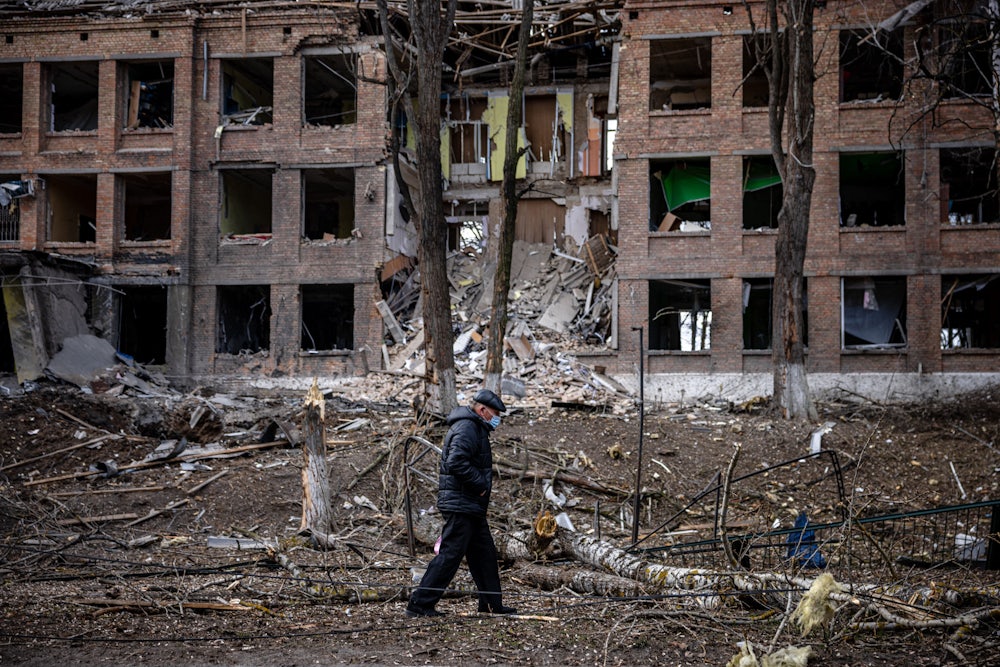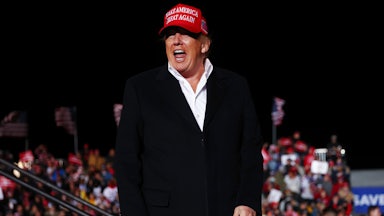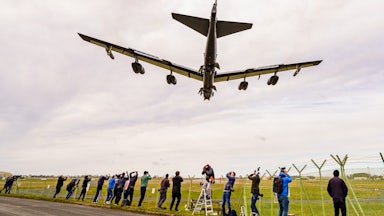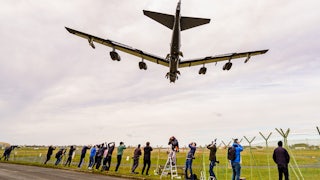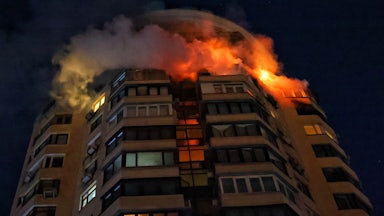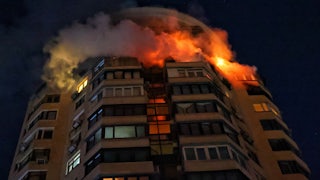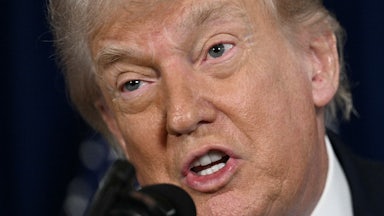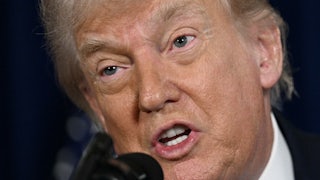As he watched Russian forces move on Kyiv, as part of that nation’s immoral, unjustified, and already hugely costly war on Ukraine, NBC News correspondent Richard Engel had a thought: Why doesn’t the West simply bomb the hell out of the Russians? “Perhaps the biggest risk-calculation/moral dilemma of the war so far,” he tweeted. “A massive Russian convoy is [about] 30 miles from Kyiv. The US/NATO could likely destroy it. But that would be direct involvement against Russia and risk, everything. Does the West watch in silence as it rolls?”
Engel, NBC News’s chief foreign policy correspondent, should know the answer to his question, which is not at all complicated. For one thing, Ukraine is not a part of NATO, so it’s not subject to the military alliance’s common defense pledge. For another, Congress would have to declare war on Russia, something for which there is little appetite. But these practical concerns only dance around the bigger and more obvious problem with Engel’s question: Wiping out a Russian convoy would mean kicking off a war between Russia, the United States, and NATO. From there, what is already a tragic conflict would expand exponentially, likely launching a third world war. Also, Russia has nuclear weapons. A lot of them, in fact. The U.S. and various NATO nations do, as well. You see where this is going? From a strategic perspective, sure: The U.S. is certainly capable of doing exactly what Engel suggests it might. But the attendant risk calculation and moral dilemma is not tricky to resolve, and Engel, who was ostensibly not born yesterday, should know that.
The fact that he either doesn’t know, or won’t say, is alarming, if not particularly surprising. The situation in Ukraine is calamitous and senseless. Thousands of civilians will die in a conflict that should have been avoided: Ukraine poses no threat to Russia; Putin’s aims spring from undistilled irredentism and colonizer nostalgia. That his megalomaniacal foolishness seems poised to become a long and drawn-out insurgency is particularly upsetting: The horrific images coming out of Kyiv and Kharkiv may just be the start of what could be an immensely costly conflict.
But Engel’s glibness is also alarming because he’s hardly alone. There has been saber-rattling from other corners of the media and foreign policy establishment; as the conflict persists there will be further pressure, from some media quarters, to start a hot war with Russia without regard for what would certainly be profound consequences. Fiona Hill, the former National Security Council official, suggested that World War III had already begun, a particularly dangerous and escalatory claim. Shortly before the invasion began, Bari Weiss published a piece on her Substack by the writer Zoe Strimpel arguing that “the United States seems to have forgotten the point of waging, or threatening to wage, war.… We can’t simply impose (or lift) sanctions. We have to achieve it by threatening—credibly—to pummel into oblivion anyone who gets in the way.”
As the conflict draws on, this saber-rattling will likely only increase, even though the consequences of war with Russia are profound and terrifying. Too many look at the horrific situation in Ukraine as an opportunity for adventurism or for fulfilling a long-held dream of a hot war with Russia. There’s always someone, sitting in some green room or staring at some screen, who sees the charnel house of war as an opportunity to become a Great Man of History, consequences be damned. As The New Republic’s contributing editor Alex Pareene once wrote, “The only thing the elite Washington press corps likes more than a bipartisan commission on debt reduction is a stack of flag-draped coffins.”
Grotesque warmongering hasn’t been the only folly on display. Others in the media have revealed deep biases that might have been better left unspoken. Reporting from Kyiv, CBS News senior foreign correspondent Charlie D’Agata said that the Ukrainian capital “isn’t a place, with all due respect, like Iraq or Afghanistan, that has seen conflict raging for decades. This is a relatively civilized, relatively European—I have to choose those words carefully, too—city, where you wouldn’t expect that or hope that it’s going to happen.” It was like watching a drunk driver crash his car in slow motion, with D’Agata acknowledging how potentially offensive his idea is … and then, saying it anyway.
But D’Agata is accidentally exposing the prejudices that shape—or if you prefer, distort—global news coverage. When a country like Syria is engulfed in a civil war, it’s treated as tragic but inevitable—just the same savagery that’s constantly happening in an unenlightened part of the world. (Never mind that it’s the legacy of “enlightened” European colonialism that has left wide swathes of the developing world undone.) In Kyiv—a city that European and American journalists are much more likely to have visited than, say, Aleppo—the situation is different. At the very least, it’s a place that looks like places they’ve been to; the people look like them, too.
But these are biases, not facts. The situation in Kyiv is tragic but not more than the one in Syria or Afghanistan: These are places where immense and needless human suffering are occurring. D’Agata later apologized, offering a clarification that might have raised the eyebrows of Kosovars and Georgians: “What I had hoped to convey is that what’s unique about the fighting underway here is that this country has not really seen this scale of war in recent years, unlike some conflicts in countries I’ve covered that have tragically suffered through many years of fighting.” But war is never inevitable—even though many war correspondents seem to think that it is, or believe that more of it is to be preferred.
